
Rudely roused from an afternoon nap, the stocky shore crab I’m inspecting is contorting every part of his one-and-a-half-inch body in irritation. Front limbs hunched and pincers clenched, he resembles the sort of squat middle-aged man whose Napoleon complex triggers late-night pub fights.
A grudging stagehand plucked from behind a rocky curtain and shoved into the spotlight, he retaliates by menacingly blowing bubbles.
“That’s swearing in crab,” explains Kazz Padidar, the crustacean-clutching foraging expert who has led us to St Ouen’s Bay, a magnificent eight-kilometre stretch along Jersey’s west coast.
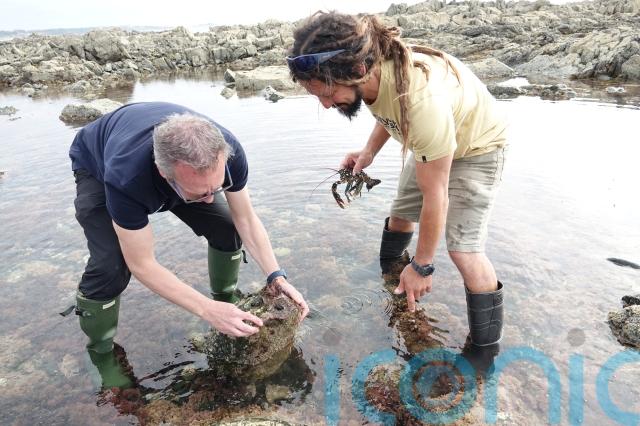
Our reluctant rockpool star may be displeased to see us, but marine life is top billing on our three-day trip to Jersey, one of the best places in the British Islands to appreciate the power, beauty and fragility of our oceans.
Attracting tourists and boosting the economy through a sustainable fishing industry, a healthy marine environment is the island’s greatest resource.
Voted through in October, Jersey’s first Marine Spatial Plan will develop a network of marine protected areas raised from six to 23%, where dredging and trawling will be banned. The devastating impact of these damaging fishing practices on the environment and small scale operators is a hot topic, recently highlighted by new David Attenborough documentary, Ocean.
An ideal base for scientific research, the compact island hopes to be a case study for the rest of the world.
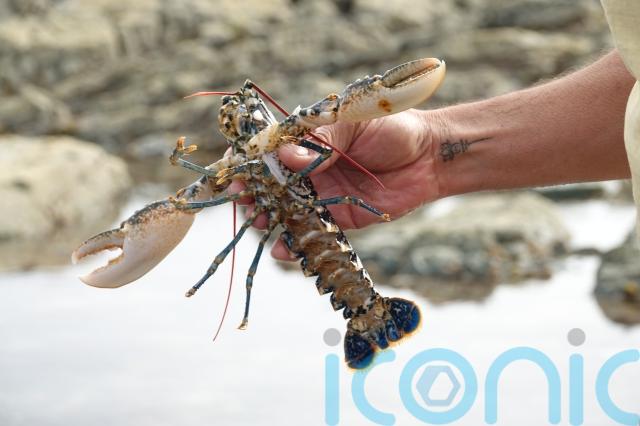
Now a Crown Dependency, the 116-square kilometre island has experienced several rulers and was occupied by the Germans during World War II. During that dark period, Kazz’s grandparents were forced to feed their nine children with whatever they could find after the Nazis claimed their farm.
Kazz, with his tumbling dreadlocks that look dyed by squid ink and the sun, inherited those survival skills. He is a proselytiser for preservation, someone who describes the properties of seaweed as “epic”, and argues nature’s gifts prove “magic is real”.
“To be a forager in Jersey you’re in paradise,” he declares, encouraging us to sample sandwort zinging with melon and cucumber flavours. He describes it as being “like something out of Willy Wonka”. We munch on carroty rock samphire, sour wood sorrel and spicy sea radish as he reminds us “it’s all free.”
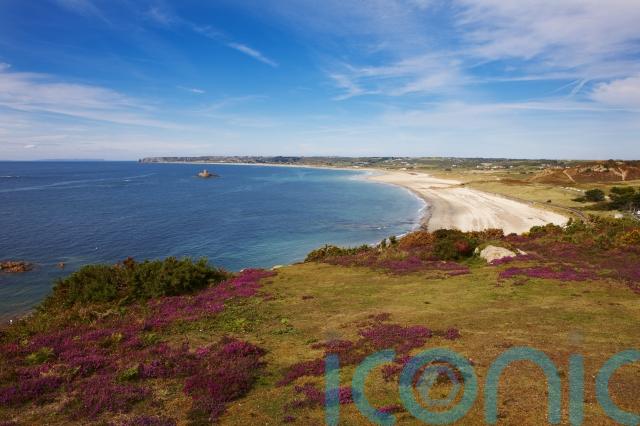
Kazz runs foraging tours through his company, Wild Adventures. At one point during our walk, he uncovers a lobster then returns it, carefully replacing the rock exactly as it was found.
Andrew Baird is generously moonlighting as our tour guide and chauffeur, but for the last 35 years the South Yorkshireman has been executive head chef at Longueville Manor Hotel and Restaurant, Jersey’s only AA Five Red Star hotel and sole member of the exclusive Relais & Chateaux luxury collection.
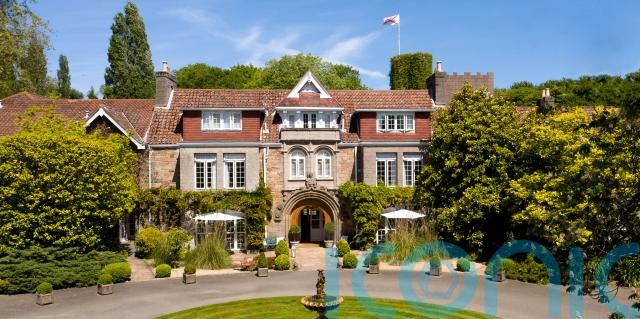
The mid-16th century manor fell into disrepair during the German occupation, when it was used as officers’ quarters, but was revitalised in 1949 by Sidney and Edith Lewis. Their grandson, third-generation hotelier Malcolm Lewis, now manages Longueville with his wife, Patricia.
The dog and family-friendly hotel boasts 29 rooms, an outdoor swimming pool, small spa, hot tub, tennis courts, workout facilities and an impressive wine cellar.
My suite is simultaneously sprawling and cozy. Like the rest of the property, its aesthetic is elegant but unfussy, with Hunter wellies lined up beside an inviting hearth.
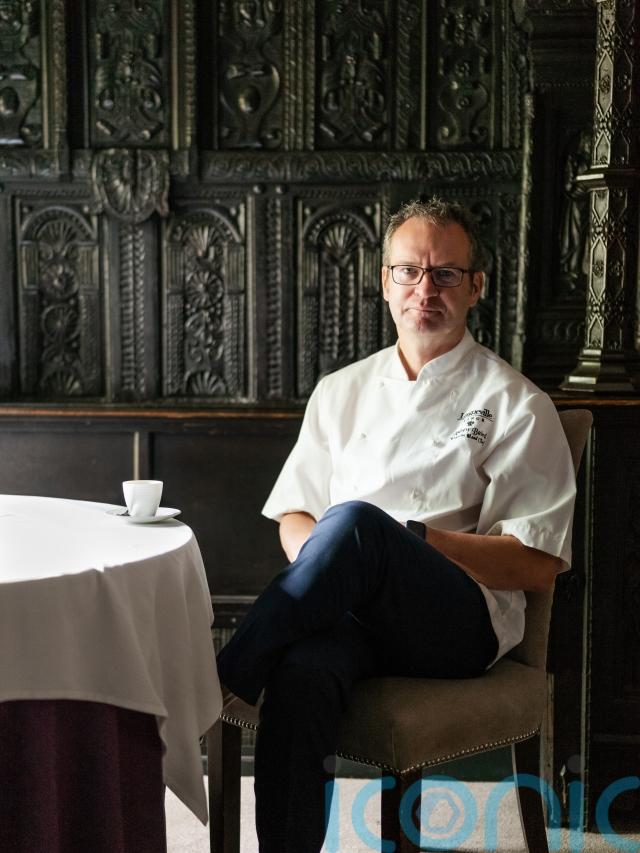
Longueville’s heart is its dining room, boasting ornately-carved wooden panelling rumoured to have originated from crates washed up in the Spanish Armada.
At dinner, Andrew serves us a sustainable tasting menu comprised of spider crab with poached lobster, cucumber, Bloody Mary, garden salad, yuzu and lime, then a course of wild turbot with grilled local octopus, plum tomato, Kazz’s foraged herbs, aioli and – of course – the renowned Jersey Royal potatoes we unearthed from the hotel’s own tranquil chef’s garden that morning.
But it’s the opener – freshly hand-dived local scallop ceviche with carrot, cumin and coriander – that reminds us just how special this place is.
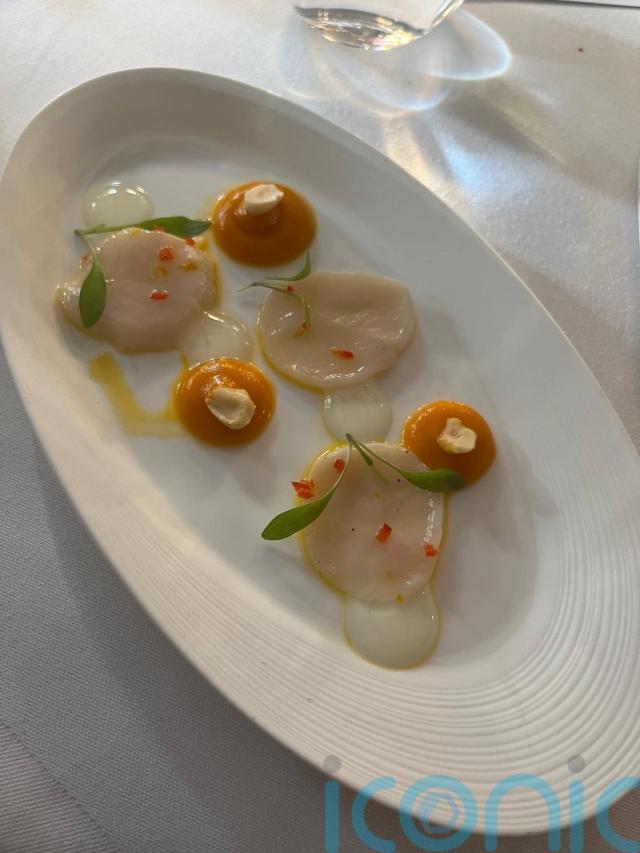
Our scallops were procured by Bob Titterington, a Jersey legend in his early 60s who celebrated 40 years of hand-diving last year.
Bob can be underwater for two hours at a time, and his three-man crew yield a good haul of 500-600 scallops each day. All are sustainably sourced and checked to ensure they meet minimum size requirements enforced by Marine Resources, Jersey’s multi-faceted government authority responsible for regulating fishing and implementing policies that support responsible fisheries and environmental conservation.
Forging relationships with fisherman like Bob “takes years”, Andrew tells us later, “and they have to accept you as well”. But when it comes to securing the best local ingredients, “that’s when your friends come in”, particularly when something is in short supply.
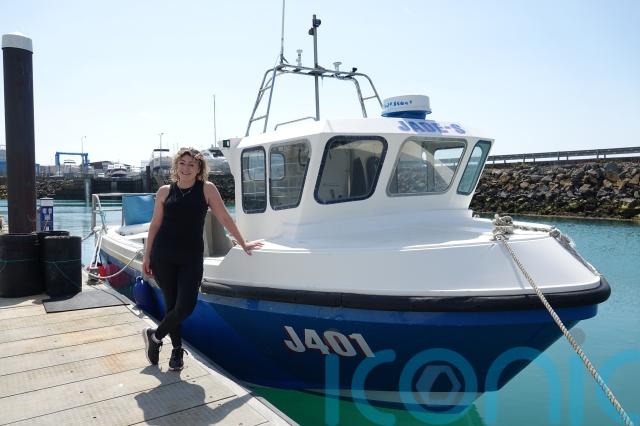
Andrew has worked with Bob, Kazz and the same fisherman for decades, and is now planning to restart Jersey’s chef’s circle, bringing together stakeholders to forge crucial connections and establish best practices.
There are about 30 to 40 full-time Jersey fishermen – including one woman, the entrepreneurial Gabby Mason.
The 32-year-old co-owns Jade-S fisheries – selling fresh catches from St Helier’s Victoria Pier – and the popular Driftwood Cafe, idyllically situated beside the pebbly beach at Archirondel.
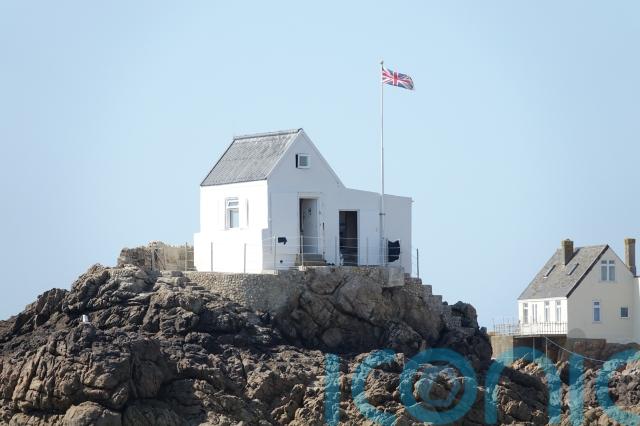
The following day, we tour the little-known Ecrehous islands with RIB outfit Jersey Seafaris, spotting seals, gannets and terns, who squawk sternly as we approach their roped-off nesting site.
And while we are not lucky enough to glimpse any dolphins, we do encounter Bob and his crew out on the water, where it strikes me that Jersey’s tourism and sustainable food industries, like the ocean, are part of a delicate ecosystem – one also requiring conscious cultivation.
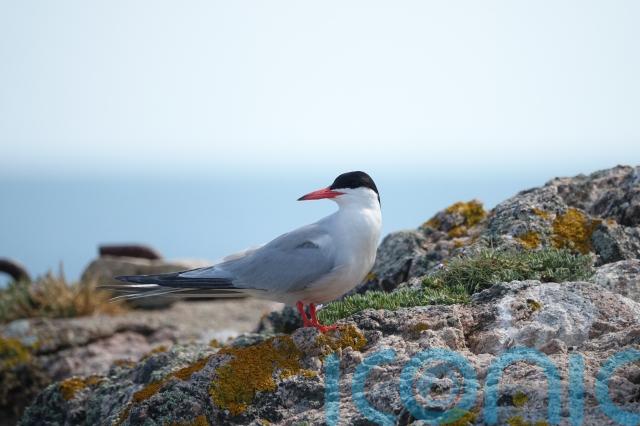
Everyone we’ve met – from hoteliers to the hand-divers, marine biologists and Madeiran crab-pickers – rely on each other, and understand sustaining that symbiosis is key to Jersey’s success.
But visitors also have a part to play, and if that means swinging by a farmer’s field-side “honesty box” to purchase some fresh Jersey Royals before heading home, now more conscious about my consumption, I am delighted to do my bit.
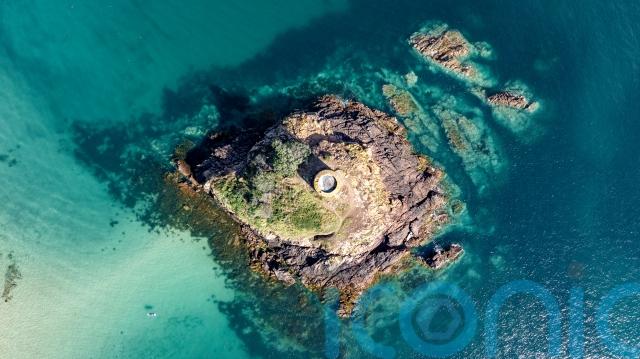
Because as soon as I stepped foot on this unique island, I, too, became part of its ecosystem.
How to plan your trip:
Rooms at Longueville Manor (longuevillemanor.com) start from £200 with breakfast. Foraging and tours through Wild Adventures (wildadventuresjersey.com; various prices). Ecrehous Islands wildlife tour with Jersey Seafaris (jerseyseafaris.com), starts from £45.99.
Subscribe or register today to discover more from DonegalLive.ie
Buy the e-paper of the Donegal Democrat, Donegal People's Press, Donegal Post and Inish Times here for instant access to Donegal's premier news titles.
Keep up with the latest news from Donegal with our daily newsletter featuring the most important stories of the day delivered to your inbox every evening at 5pm.